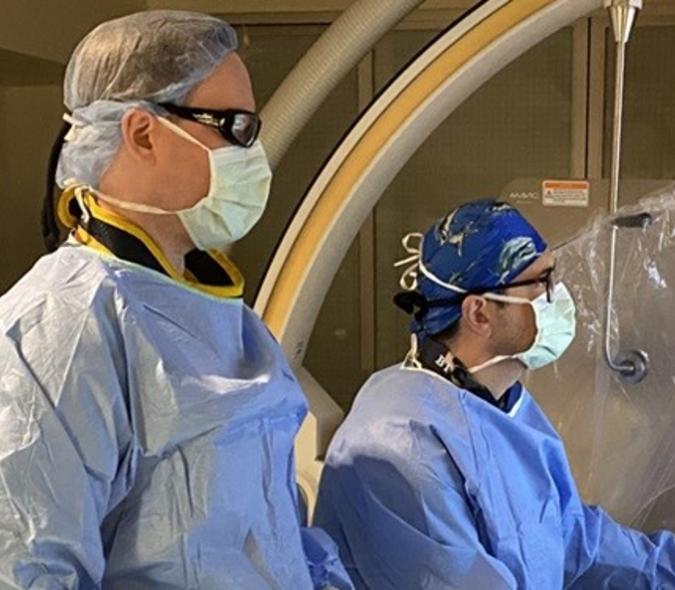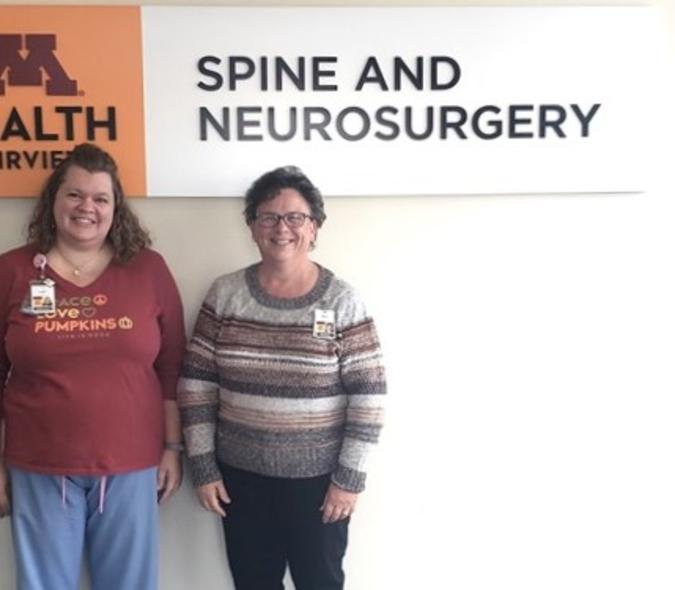
Researcher Spotlight: Ping Zhu, MD, MMed, PhD
Dr. Zhu joined the Chen Brain Tumor Laboratory team in 2021. She has a comprehensive background and specific expertise in epidemiology and biostatistics with more than 10 years of research experience. She is interested in investigating the contributors and related impacts on the incidence and prognosis of primary brain/central nervous system tumors and brain metastases. “We want to identify the predictors related to incidence and outcomes of brain tumors using multiple large-scale real-world datasets,” she said.
Lots of opportunities at the U
Attracted to the University of Minnesota because she would like to develop more comprehensive research projects focusing on brain tumors, Dr. Zhu noted, “There are lots of opportunities here for this type of research. I also think the University is a well-respected research institution that has many resources to support young investigators.”

Dr. Zhu (pictured here) became interested in brain cancer research during her internship. “I’ve always been interested in cancer,” she said. “I like the brain tumor field the most because they’re relatively rare compared to other cancer types, such as lung, breast, or colorectal, but the prognosis can be much worse.”
Area of interest: glioblastoma
An area of particular interest for Dr. Zhu is glioblastoma (GBM), the most common malignant brain tumors for adults. “Patients diagnosed with GBM live a median of 14.6 months from clinical trials and 10 months from the cancer registry dataset,” she said. “There are not a lot of therapy options for patients to choose and they usually don’t have time to hesitate because the progression of GBM is rapid and aggressive.”
Dr. Zhu has worked with “strong-hearted” glioblastoma patients who went through all the exhausting treatments and still managed to return to their normal life, even back to work. “That’s why I’m motivated to work in this field,” she said. “I realize that it might be very difficult to develop a miracle cure to save these patients, but at least I could find the contributors from an epidemiological perspective that cause brain tumors and their poor outcomes.”
Working to help brain tumor patients
She is currently working on comparing the efficacy and safety of standard and novel GBM treatments to test whether they are effective and tolerable in a real-world GBM population. “I hope this work will help brain tumor patients get better treatments and have more time to spend with their loved ones,” said Dr. Zhu.
She earned her PhD in epidemiology, biostatistics, and cancer from the University of Texas Health Science Center at Houston (UTHealth), and her MD in preventative medicine and Master of Medicine in epidemiology and health statistics from Fudan University in Shanghai, China. Prior to coming to the U, she was a biostatistician at UTHealth.
When she has some time for herself, Dr. Zhu loves to read or travel. She also enjoys hiking in state and national parks.



